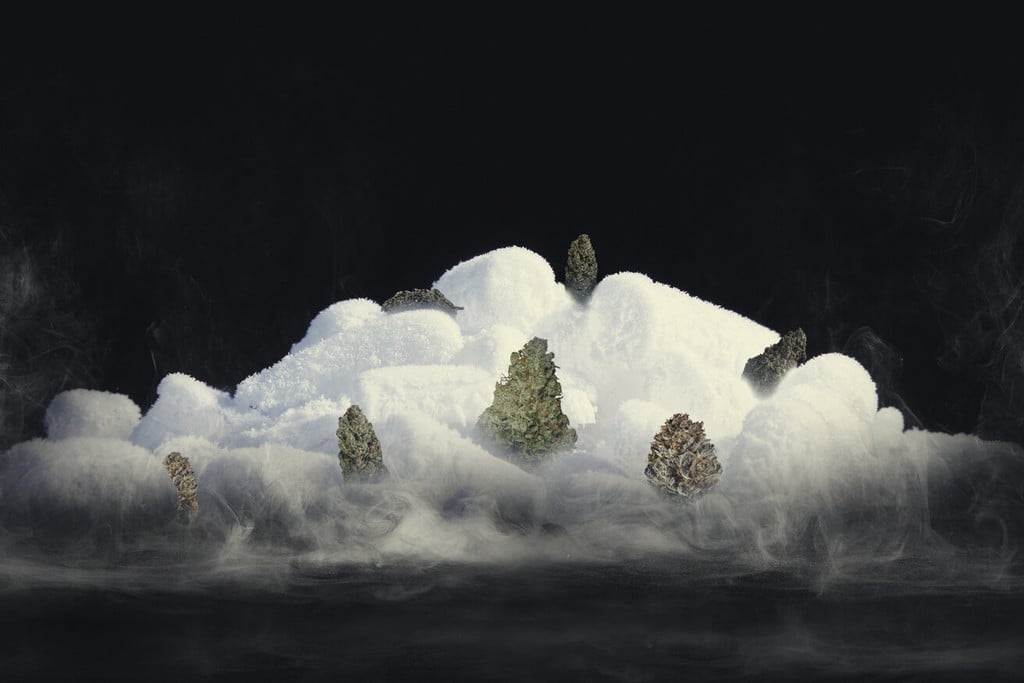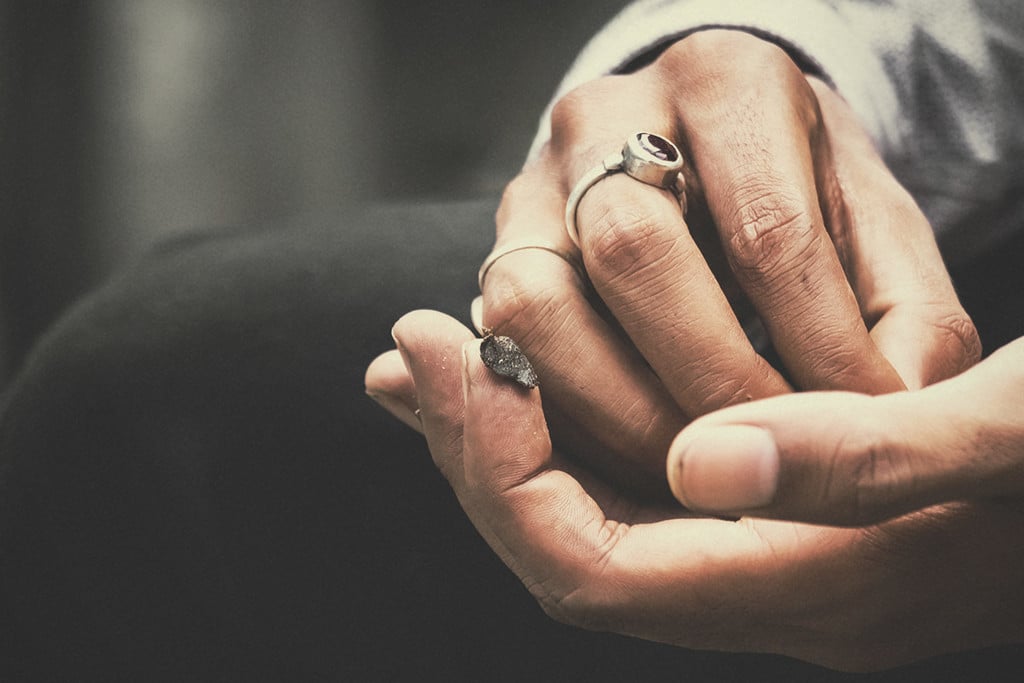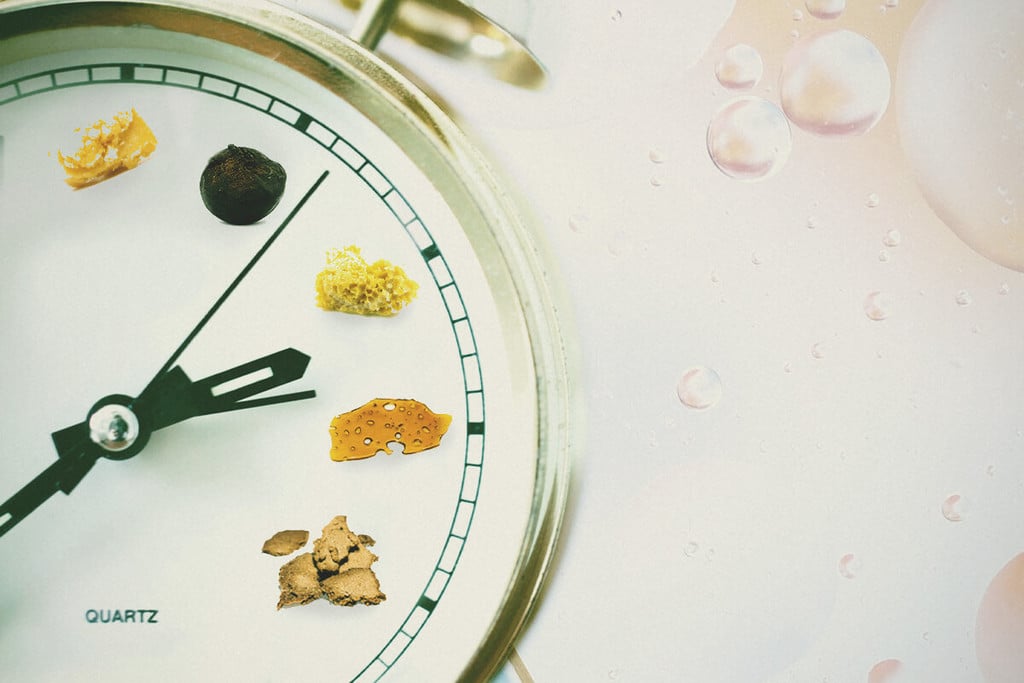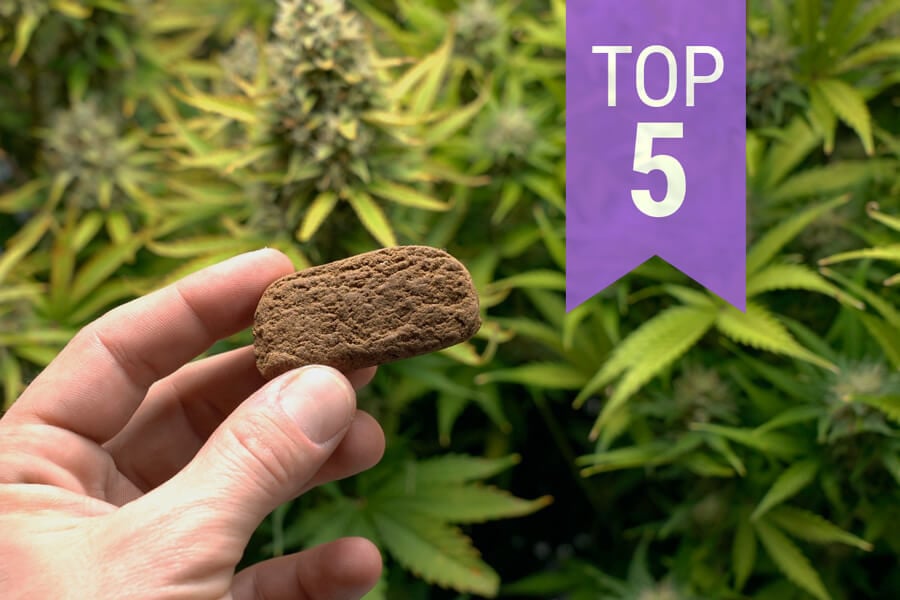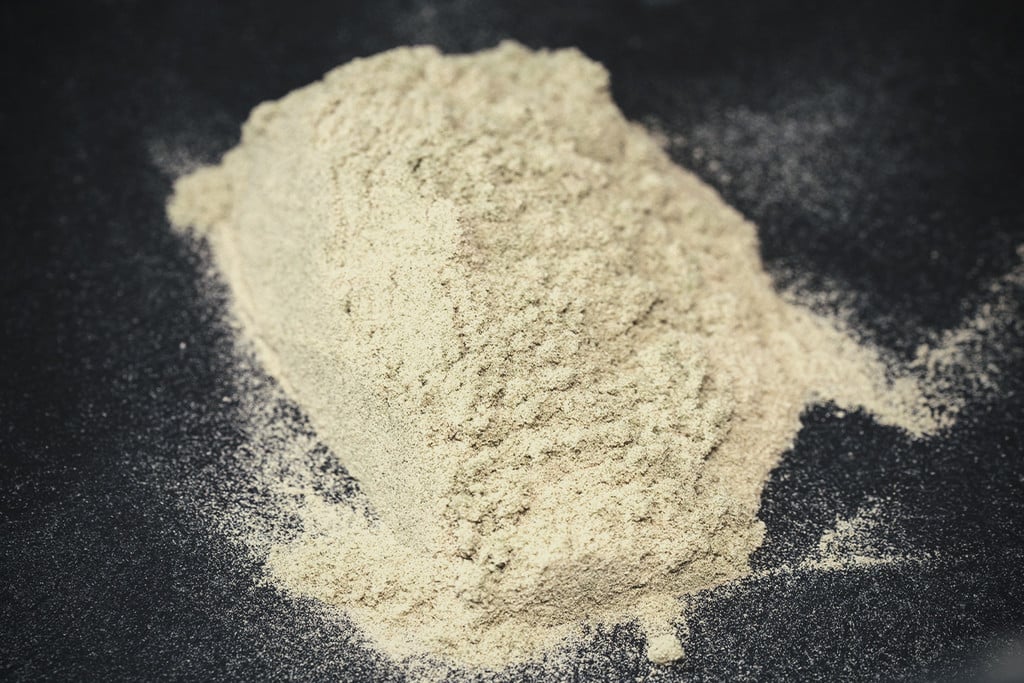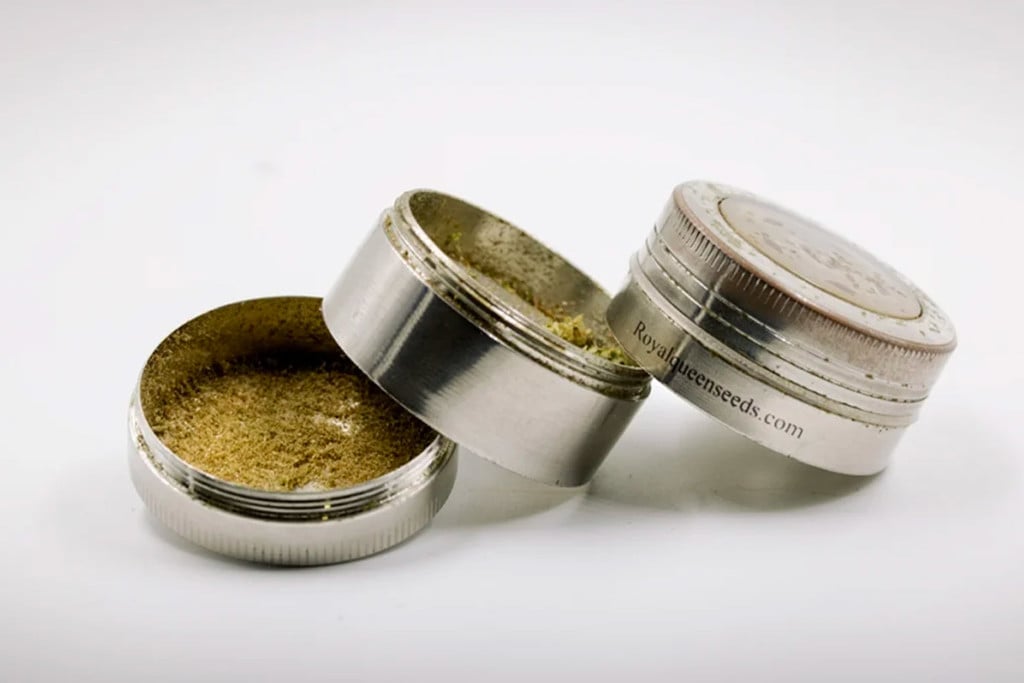.
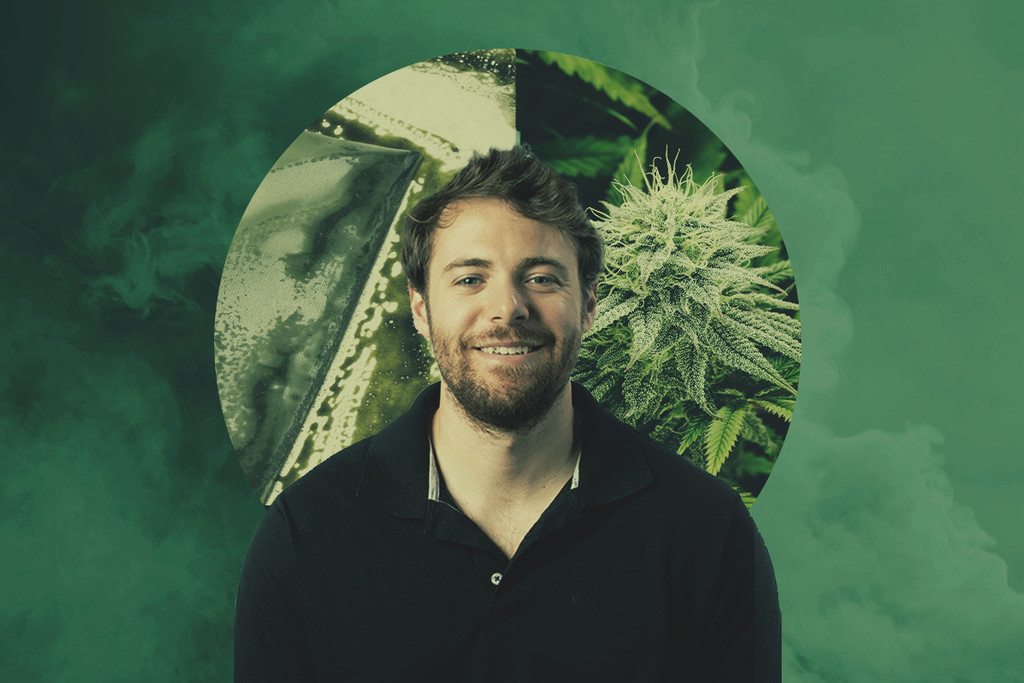
RQS Interviews — Understanding Solventless Extracts With Eric Vlosky
Hi, my name is Eric Vlosky, I'm Director of Marketing at the number one manufacturer and provider of solventless processing equipment. I share great knowledge about solventless extracts in general, I've done many conferences and interviews in my career!
At Royal Queen Seeds, we are constantly on the lookout for the best information and knowledge about cannabis. In our interviews, we talk to figures from all over the cannabis industry. Today, we have the pleasure of speaking with Eric Vlosky.
Join us as we interview solventless extraction expert Eric Vlosky! Eric is an excellent source of knowledge when it comes to high-grade cannabis preparations such as has and pressed rosin. Do you know the difference between extracts and concentrates? How about solventless versus solvent-free extracts? You’ll learn the answers to these common questions, and much more.
|
(Listen to it in Spotify and Apple Podcast) |
|---|
| Listen to it in Spotify and Apple Podcast |
Can you tell us the difference between a concentrate and an extract?
Yeah, great question. That's one we get a lot too. And the short answer is, there's no hard definition of what a concentrate is or what an extract is. Typically, an extract is a refined cannabis product. That is where you take the resin out of the trichomes and refine them in some way. So you're extracting the resin, the cannabinoids, and the terpenes from cannabis. But a concentrate is essentially the same thing. So, here in the States, you know, there's no federal governing body that dictates what things are supposed to be called. So, in many ways, a concentrate and an extract are the exact same thing, depending on who you ask.
Whether something is a concentrate or an extract, they are interchangeable terms at this time. I think in the future, there might be legal definitions of what those things are, which don't exist right now. But concentrates or extracts can be used to make edibles, for example, or a concentrate can be vaporized. But, in the same way, you can vaporize an extract. It's definitely two very related terms. And I'll be interested to see if that gets firmed up in the future. But, for right now, they seem to be the same thing.
Can you tell us exactly what solventless or solvent-free extracts are? Because we hear both terms used.
Now, these are two terms that are very different. So, compared to the first question, there's a lot more to talk about here. A solventless extract or concentrate is something that has been made without the use of any solvents whatsoever. So, ice water hash, or bubble hash, is a great example. Because you're just using ice and water to agitate and break off the trichomes from the cannabis plant, they're filtered, and then they're ultimately dried and used.
Solvent-free is where you've got a product that is made with solvents, but all of the residual solvent is purged or removed from the final product. But, typically, something that is solvent-free means it was made with solvents in the first place, but then all of those residual solvents were removed.
A question that we get a lot, and that is the subject of quite a bit of debate, is whether or not water is a solvent, for example with bubble hash. Water is a solvent in nature. You know, it cuts canyons, erosion, things dissolve in water, it can be a solvent; but, in the process of making ice water hash, it's not a solvent, because it's a carrier. You're using water to carry the trichomes through your process, and then you're ultimately trying to preserve and isolate them, not dissolve them. So, if you're using butane or CO₂, you're actually using a chemical solvent that’s dissolving the trichomes and the resins. So that's actually a process of dissolution. Whereas, with ice water hash or rosin, you know, there's never any solvents in the first place. And then we defer to the term “solventless”.
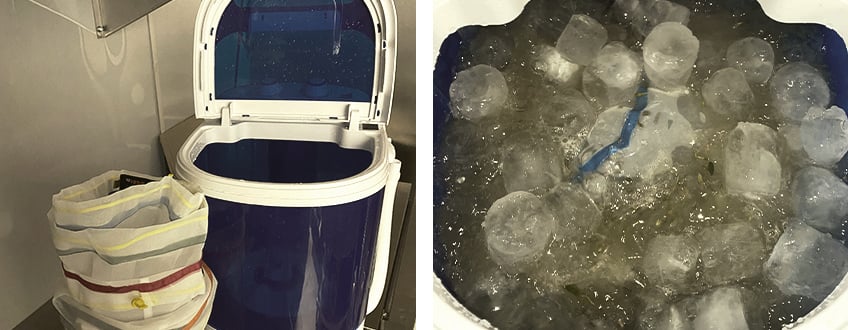
In your opinion, why do you think so many people are now turning to extracts?
You know, people are always looking for different experiences. And I think the best analogy I've come up with is that, you know, let's say you really like blueberries; the cannabis equivalent when you're smoking buds is you're eating the whole bush, you know. You're getting the blueberries, but you're also getting the leaves and stuff. And that's not a judgmental thing. It's just you're getting other organic plant material with your experience, for better or worse, depending on your opinion.
People really like extracts because, when they're done well, it's, you know, the pure expression of the plant without that other plant material. And then, of course, they're much more potent, kind of the difference between drinking beer and having spirits or liquor. So there's a potency aspect that a lot of people enjoy. You know, extracts are really popular too because they can be made into a lot of other products, like tinctures, edibles, and topicals. So, extracted or concentrated products can be used for so many different things. Whereas you have to take buds and then refine them, extract them, or concentrate them to make those other things. So you just have a lot more room to play when you have concentrates.
And the last thing I'll say is that here in the States, and I bet the same thing will happen in Europe, when a new market comes online, you know, a market goes legal, or medical, or whatever it is, people are really excited to smoke flower because they can go out and buy it legally in some way. And they're very excited. But then, as time goes on, they say, you know, I want to have a new experience. Like, I want to try a vaporizer cartridge or I want to try a dab or, you know, edibles and things like that. So it really comes down to the experiences people want to have with cannabis products. And extracts create a lot of experiences for people beyond what just a joint, bowl, or blunt can do.
Obviously, there are loads of pros about extracts, but can you tell us the disadvantages as well?
Yeah, you know, from a consumer’s perspective, if you're used to only smoking flower, you can get caught by surprise with how potent extracts can be. And sometimes for people’s first time, if they have a friend showing them and they're not being very nice about it, they can get you a little too high. So I think potency is something you have to be aware of. A lot of extracts can't be made safely at home. You need to know, if you're trying to use solvents, it really needs to be done in a professional lab environment with professional equipment for safety purposes.
And that's actually one of the reasons that solventless is so popular with home growers; it doesn't have that danger factor. Another point here is that you need a lot of material; you need a lot of flower, a lot of buds, to create any kind of concentrate or extract. You know, you're taking a lot of material, and then bringing it down into what people would consider a small amount of extract or concentrate, no matter what method you use. So we get YouTube comments constantly with people saying like, “why not just smoke the flower, who cares about the rosin”. But, again, it comes down to your preference and your experience.
But I guess the last thing I would say here is that they can be a little bit pricey, too, especially the really high-end concentrates like solventless bubble hash or hash rosin, especially the kinds of things that our business produces. Cost can be a little bit of a barrier for some consumers. So you know, there are some cons. Most people tend to enjoy concentrates when done right. But if you're new to concentrates, don't let your friend give you too big of a dab. Yeah, probably wouldn’t be a good time.
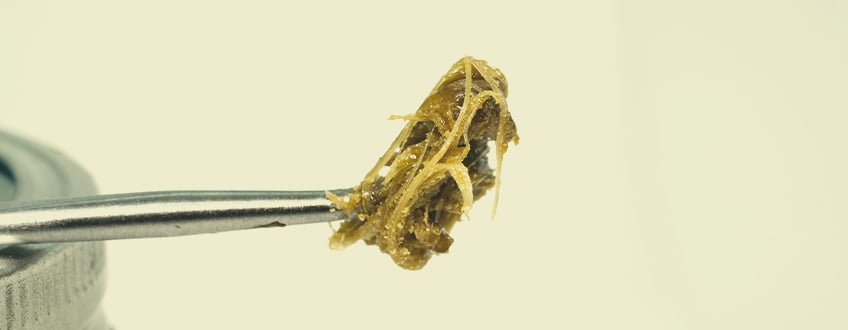
Can you tell us what makes a good-quality extract?
I think, to summarise it, it comes down to what kind of material you’re starting with. And I think in Europe there seems to be a lot more emphasis on the quality of the food that's being produced and eaten, for example, whereas in the United States, we don't have that food culture in a lot of ways. So that's like, the perfect example for me, is that you really need high-quality cannabis to make a high-quality concentrate. It sounds very simple, but often a lot of lower or middle-grade material, they can't really sell it on the shelf. So they just blast it with butane or CO₂, and then they turn it into a concentrate.
So if you're trying to make the best-quality extract, or at least a good-quality one, you really need to start with great-quality material going in, because that plant is going to have more cannabinoids, it's going to taste better, and it's going to have more terpenes and flavonoids. There's a much longer explanation to this, but, for the most part, it's quality in quality out with extracts, and many of the very best cannabis buds in the States and, you know, Canada, they're not being grown to be sold on the shelf, they're being grown to be processed. And yeah, typically into solventless concentrates, they never make it to the shelf in flower form.
"The plant is in the pot, it's growing, you cut it down, you take the flowers off of it, and then you freeze it. And what that does is preserve a lot of the volatile terpenes that are otherwise lost during the drying process."
What affects the color of an extract?
So the color of an extract, in terms of solventless production, is very different than solvent-based extraction. So I'll start with what people can expect with solvents, and then how it changes when you're doing solventless extractions or concentrates.
So, depending on your mix of propane or butane, or how you're running your system if you're doing CO₂, you can take pretty low-grade material and have it come out to have a really nice color with solvent-based concentrates. So, if you're smoking butane hash oil, or some of the other solvent-based concentrates or extracts out there, color isn't a good indicator of the quality of the product, because of what's known as CRC. It’s a type of remediation where you can actually change the color of the product, even if it started looking pretty bad in the beginning.
And, of course, as we all know, color is one of the biggest indicators of quality. Especially when you're buying bud, whether it's in a bag or you're buying concentrates, color is, you know, one of the most important visual cues for quality. But with solvent-based concentrates, it doesn't really mean anything, because they can manipulate it so easily. With solventless concentrates like hash or rosin, you, you know, sift all these things. The color of the extract is affected heavily by the freshness of the material. So if it has been freshly cured and dried and then processed, that makes a huge difference. Even a week or two can change the color dramatically.
The temperature that you press your rosin at makes a massive difference too. If you're pressing at a very hot temperature, you're going to find the color degrading fairly quickly. So you have to find a middle-ground between color and yield because, if you press it at a very low temperature, sometimes it can affect your yield. So, ultimately, the cannabis itself, the freshness, and how quickly you process it is what affects the color. So if you've had some buds that have been sitting around for six months and you press them in your rosin press, it's probably going to come out really dark. Whereas, if your friend just harvested some plants, and you just dried them and cured them to make rosin, it's probably going to come out much, much lighter.
Oviously you have recreational cannabis and therapeutic cannabis, can you do extracts with both? Or can you just use them recreationally?
Yeah, you can definitely do both. There's not a lot of peer-reviewed or scientific evidence out there pointing to whether or not certain concentrates are better for medical patients. You know, we've heard quite a bit from our customers that they only consume solventless because they feel it's a better product for them, but it all comes down to consumer preference.
You can definitely use them both ways. Dispensaries in the United States that have the ability to sell recreationally and medicinally sell products, especially concentrates, on both sides of the aisle. And a lot of people who are medical users tend to gravitate towards concentrates because they tend to consume more cannabis than your average consumer. And smoking a lot of flower can hurt your lungs a little bit; you know, that’s not always the best experience. If you're just smoking flower all day, every day, you usually want to have something a little more potent, and not have to consume as much of it to get the effect you're looking for.
So, you know, there's no real difference between making a concentrate for a recreational consumer versus a medical consumer, but a medical purchaser, or someone doing it for therapeutic effects will probably consume different concentrate products. Rick Simpson oil (RSO) is highly therapeutic, so they might consume a lot more CBD than someone who is a recreational consumer. So there are some different products that are concentrated that a therapeutic user or medical user might tend to consume more of. But, in terms of making them, there's no real differences other than at the legal or legislative level.
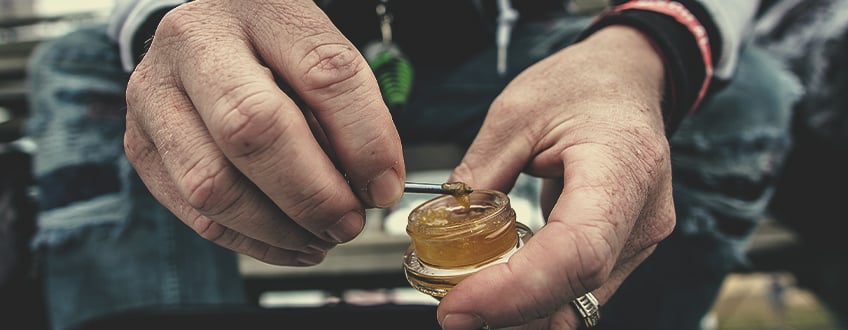
Can you tell us if it's best to do extracts with dried flowers, cured flowers, or fresh ones?
Yeah, great question. It's our opinion that if you want to make the best concentrate you possibly can, you're pretty much always going to want to use fresh-frozen material. And it takes more work if you're someone who's at home. But, for businesses, it's often less work because they don't have to trim and dry and cure the material, which can take weeks at times. But what you're really doing when you're using fresh-frozen cannabis is: the plant is in the pot, it's growing, you cut it down, you take the flowers off of it, and then you freeze it. And what that does is preserve a lot of the volatile terpenes that are otherwise lost during the drying process.
So people really gravitate towards what are called “live” concentrates. You might be familiar with the term "live resin" or "live rosin". Those are made with a live plant that's been fresh-frozen. Now, there is some debate; there are definitely hash-makers out there who feel strongly that they can make a better product or a different product by using dried, cured flowers. You have to use dried, cured flower if you want to make flower rosin. If you're just going to press a button, it has to be dried and cured. If it's fresh-frozen, it has too much moisture. So people will take fresh-frozen buds first, make it into bubble hash, which is a better process for that, and then they'll press the bubble hash into rosin.
But, your material changes; your cannabinoids change when you dry and cure it. So you can have a different-tasting, different-smelling product with a dried and cured concentrate. With some concentrate methods, like CO₂ for example, you have to have a dried, decarboxylated starting material to actually process, whereas with hydrocarbon or solventless, you don't have to dry and cure that material first. So I'm a big fan of fresh-frozen being the starting material, and the best concentrates I've ever had are made with those live plants.
If we're at home and want to create something that is good, you know, what is the easiest solvent extract to do at home?
Definitely flower rosin. If you're gonna make a concentrated haul at home of any variety, flower rosin is going to be your go-to, because you can literally make it with a hair straightener. So you don't need to have specialized equipment, like what we sell to make flower rosin at home. All you need is, you know, heat and pressure, essentially. Now, if you're trying to make a lot of it, or you're kind of sore, or you're trying to make a really, really high-quality product at home, then that's when you need to make an investment in your equipment.
But all you have to do is press dried cannabis flower between parchment in between a heated-up hair straightener. Now, that doesn't give you a lot of control in terms of your temperature and being able to really dial in your process, but that's literally how rosin was discovered. A guy who goes by the Instagram handle “@soilgrownsolventless_”, also his real name is Phil, someone I know, he basically stole his partner's hair straightener and pressed a bud between it, and oil came out and the light bulb went off. And he thought, you know, wow, this, this could be huge.
So, you can make flower rosin at home. It's very simple. And I think, for a lot of people, it's a good experience. But if your temperature is too hot on your plate, it's going to come out smelling like burnt popcorn. So you want to do a lower temperature setting to try and get best results if you're doing something very simple at home.
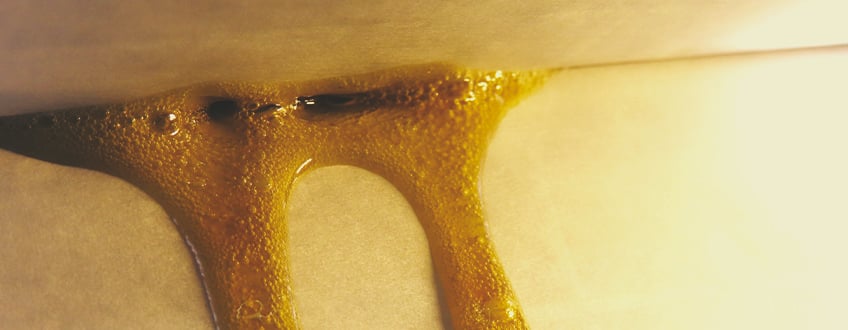
Why do you think there's a wide variety of extracts today compared to the past?
First of all, the industry is growing very quickly. So there's a lot more people who are consumers that want to purchase cannabis products. So there's more demand. And then there's businesses that are getting into the space to offer different kinds of processed products and different kinds of equipment. So, at a very high level, it's supply and demand. But I think a better way to explain it is that people have all kinds of different preferences.
I mean, some people really like oranges, and some people can't stand citrus. So when it comes to cannabis products, people are no different. You know, people have all kinds of different taste preferences. I really like fruity concentrates and strains, some people really like the gassy, heavier strains. And because there's so much competition in the market, businesses have had to differentiate themselves and create different products to appeal to different consumers. So, many older consumers in the States, for example, they don't really want to smoke or take dabs. They'd rather just eat edibles, or do something more mild.
So, depending on how old you are, you know, do you have asthma? If you do, you probably don't want to vaporize or dab anything, or younger consumers tend to want to have that really potent, strong experience with really strong concentrates. I think potency is another great topic that we could talk about if there's time. But, you know, when it comes to why there's so much more variety, it's because there's so much more demand. And now people have choices when it comes to the products that they buy. Just like at a grocery store, it can be overwhelming how many choices there are; I think a lot of people have the same experience when they walk into a dispensary in the United States.


























